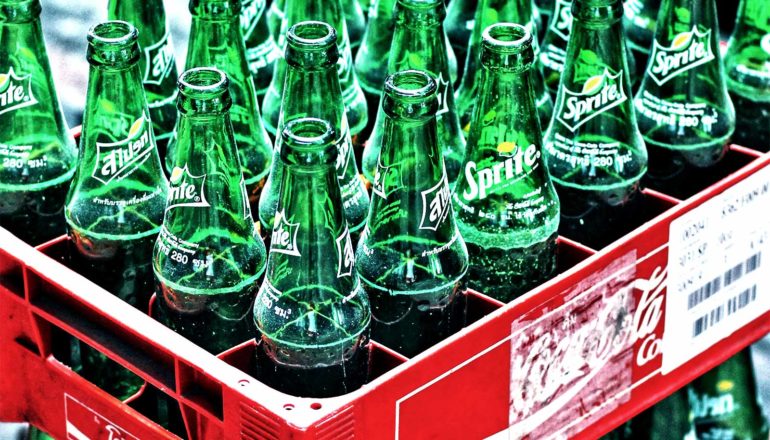
Existing warnings on other products should offer a roadmap for labeling soda and other sugary drinks without violating the First Amendment, a global health expert argues.
In 2015, San Francisco passed the country’s first and only law requiring a warning label on advertisements for soda and other sugary drinks.
WARNING: Drinking beverages with added sugar(s) contributes to obesity, diabetes, and tooth decay. This is a message from the City and County of San Francisco.
But last year, the US Court of Appeals for the 9th Circuit ruled the law unconstitutional and said it infringed on soda companies’ right to commercial speech under the First Amendment.
“Over the last decade or so, courts seem to be providing increased protection to the speech by companies, all at the expense of public health,” says Jennifer Pomeranz, assistant professor of public health policy and management at the New York University’s School of Global Public Health.
The question, of course, is: why? Health and safety warnings are regularly used to inform and protect consumers on, for example, alcoholic beverage containers that caution against drinking and driving and remind of the risks to pregnant women, as well as on tobacco packaging and advertisements.
These labels have existed for decades, with the Federal Cigarette Labeling and Advertising Act of 1965 prompting the first generation of tobacco labels and alcohol warnings starting in 1989.
Research shows that cigarette labels alerting people to the consequences of smoking—especially graphic ones like the FDA’s new warnings, which illustrate stunted fetal growth, neck cancer, and bloody urine, among others—can deter people from buying them.
With the consumption of soda and other sugar-sweetened beverages linked to a host of chronic diseases, these products seem to be a prime candidate for consumer health warnings.
Making matters worse, consumers can gulp liquids quickly without the same fullness cues that come with eating solid food—so it’s no surprise that sweet beverages are the leading source of added sugar in modern US diets.
But with San Francisco’s soda warning struck down, it’s unclear whether other cities and states—which have proposed a total of 26 bills similar to San Francisco’s—will move forward with their own efforts to add warnings to sugary beverage packaging, bottles, advertisements, or at point of sale.
A new analysis in the American Journal of Preventive Medicine focuses on the proposed warnings, existing labels on consumer goods, and the courts’ interpretation of the First Amendment.
“Warnings on sugar-sweetened beverages that mirror health and safety warnings long established as permissible on other consumer products should be considered constitutional,” Pomeranz writes.
“However, evolving First Amendment jurisprudence leaves outstanding questions, especially on the interpretation of controversy, formatting requirements, and levels of required specificity for warning language.”
Here, Pomeranz discusses the case for soda warning labels and how they compare to other disclosures:
The post Warning labels for soda are legally tricky appeared first on Futurity.
from Futurity https://ift.tt/2JIO9DR
No comments:
Post a Comment